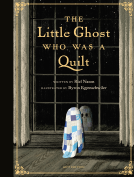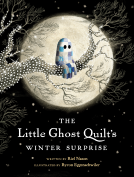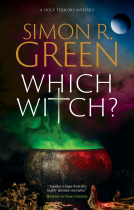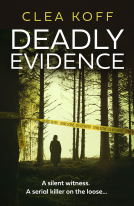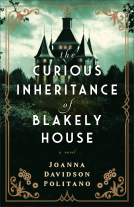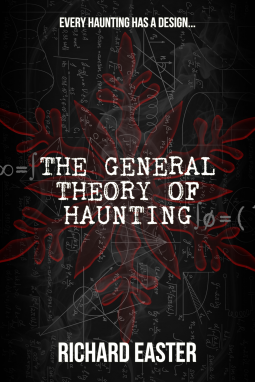
The General Theory of Haunting
by Richard Easter
This title was previously available on NetGalley and is now archived.
Send NetGalley books directly to your Kindle or Kindle app
1
To read on a Kindle or Kindle app, please add kindle@netgalley.com as an approved email address to receive files in your Amazon account. Click here for step-by-step instructions.
2
Also find your Kindle email address within your Amazon account, and enter it here.
Pub Date 24 Dec 2017 | Archive Date 13 Sep 2018
Talking about this book? Use #TheGeneralTheoryOfHaunting #NetGalley. More hashtag tips!
Description
Every haunting has a design…
Winter, 1809. Lord Francis Marryman’s wife, Patience, is dying. In the madness of his grief, desperate to keep Patience’s memory alive, he’s compelled to build a memorial in the form of a remote country Hall. But as the plans move forward, Marryman Hall seems to become alive with more than just memories.
Francis, a brilliant mathematician and scholar, has built more into the walls than just bricks and mortar.
Autumn, 2018. Siblings Greg and Lucy Knights, owners of K&K Publishing Company, are seeking a venue to celebrate the 18th anniversary of their company’s inception. At such short notice, there is only one option that still has vacancies: Marryman Hall.
Winter arrives and as heavy snow falls, the guests drop out until a much depleted party of just 6 reach their destination and soon find themselves snowed in. As the guests’ private lives and demons are exposed in the increasingly awkward, claustrophobic atmosphere , the secrets of Marryman Hall and her history are also brought into shocking light from the darkness. In his grief, it’s possible that Lord Francis Marryman may have made a terrible mistake…
The General Theory of Haunting is the perfect ghost story to curl up with on the long winter nights - like Marryman Hall's guests, you won't know what's truly happening until it's way too late...
Richard Easter has worked as a professional writer since 1987, writing for radio, TV, print and music. Over the last 3 decades, he has written for many of Britain's best-known TV programmes and presenters. The General Theory Of Haunting is one third of his first trio of books, The Snow Trilogy.
Advance Praise
"Easter definitely knows how to put you in the character’s shoes and make you feel the creepiness of a snow-heavy winter, creaking doors and whispering walls.”
“...a chilling masterpiece...” great writing, well developed characters...a twisting plot ...a unique story. Enjoyed it tremendously.”
“Richard Easter has a way with words and he manages to present the plot like you are under the impression that you are watching a movie, not reading a book.”
“Just superb, the author's mastery of words and meaning...gives this novel, which is a wonderfully creepy supernatural thriller, an extra edge.”
Available Editions
| EDITION | Ebook |
| ISBN | 9781977001245 |
| PRICE | US$0.99 (USD) |
Links
Featured Reviews
 Michaela K, Reviewer
Michaela K, Reviewer
The General Theory of Haunting is a nicely-written, paranormal mystery thriller that moves slowly at first, picks up pace, has great character development, several surprises, and an absolutely fascinating theory on... well, hauntings. Marryman Hall also manages to develope a personality of its own. This isn't a horror novel, despite the hauntings. But part of the novel make a beautiful love story. Watching the time-spanning mystery of Marryman Hall unfold was just as exciting as the more usual action packed murder solving mysteries. A lovely book. I'm looking forward to more work from this author.
 Melise G, Reviewer
Melise G, Reviewer
This book was quite a surprise. The concept is very reminiscent of Shirley Jackson’s The Haunting of Hill House. A small company decides to hold a News Year Eve party/retreat in an old hall in the English countryside. A snow storm keeps the majority of guests unable to reach the building, while the few who do make it are trapped within its walls for a number of days.
They are served by a single man, Mr. Boulder, who prepares their meals, shows them to their rooms, and tells them some of the history of the building, which was built by an ancestor of the family who still owns it.
As they try to remain entertained while stuck within this house, the six coworkers began to explore and unusual, unexplainable events begin to occur. Just as in The Haunting of Hill House, I felt as if events that the characters believed had supernatural causes were just as likely resulting from psychological issues within each of the characters themselves. And, although I love Shirley Jackson’s book, and I was enjoying the atmospheric writing of this novel, I was feeling rather disappointed at times because of how derivative it felt.
However, the book takes a strong turn away from the expected course when one of the visitors discovers what appear to be explanations of quantum physics in the writings of the man who originally built the house. From there, the story veered off into a completely unexpected path, and one that was at once very interesting and truly creepy. From that point, I found the story fascinating and enjoyed the novel through to the end.
I received an advanced reading copy from Booksgosocial via NetGalley. Thanks!
 Aileen G, Reviewer
Aileen G, Reviewer
Wow, loved it. it scared me half to death until it was explained as to what was really happening. It's an exciting, interesting and enjoyable book. I really, really want to read the others in the trilogy now,
Very well written, nice twists at the end.
 Reviewer 387341
Reviewer 387341
This book really drew me in, so imaginative. Absolutely did not see that ending coming and it was all the better for it. Each character was dissected thoroughly and irrevocably changed, with all their secrets laid bare. Highly recommended.
 Claudia M, Reviewer
Claudia M, Reviewer
With a gothic feel, and very atmospheric this is a wonderful read for those who enjoy haunted houses stories.
It's very well written, with interesting characters and some really smart plot points. The story engages you from the beginning, leaving you with a very creepy feeling, what else could I ask?
 Sam L, Reviewer
Sam L, Reviewer
The General Theory Of Haunting – Richard Easter
Summary:
A ghost story, replete with an isolated Victorian mansion, built in 1810 by a grieving widower Lord Marryman, and whose mysterious purpose has not been unveiled until New Years eve, over two hundred years later.
Main Characters:
There are six visitors to the house on this ill-fated New Year’s eve, all employees or owners of K&K Publishing Company. Each have their own strengths, but most importantly their own weaknesses and secrets, which are laid bare in the house.
Mr Boulder: The suave, knowing, polished butler, who has served the Marryman family for over forty years, and seems to hide more than he shows.
Lord Marryman: Third Lord Marryman, he builds Marryman Hall seemingly as a country getaway, but it has a deeper purpose than what he is willing to publically reveal.
Plot:
Deep in the Dorset countryside, in the teeth of a vicious snowstorm, six people are struggling to make their way to a New Year’s Eve party, being thrown over three days by K&K Publishing. It was a last-minute choice of venue, and most of the team has cried off for various reasons.
Two are the sibling owners, Greg and Lucy Knight (one deeply and smugly religious, the other an alcoholic), two are the married couple Dan and Anne Barker (who outwardly are united, but inwardly struggling to come to terms with the death of their disabled son Nat), and finally Ian and Paula Hatton, also married, but also with their own secrets to hide. Especially from each other.
Ian and Paula finally get to the door, and are bundled inside by the butler, Stanley Boulder. We immediately get a sense of the Hall watching, looming, waiting. Quite quickly, we find out just how isolated the Hall is – no internet other than dial-up (kudos to younger readers who know what that is!), no working phone, and roads sealed by the blizzard. There is an unease in the group, with no-one really wanting to be there, and Boulder sets the scene with benign explanations of the noises the Hall makes.
The story then cuts to 1809/1810, where the Third Lord Marryman is losing his wife Patience. His final promise is to find her, and he makes this the focus of the rest of his life. Immensely wealthy, he has access to the great and the good to the odd and downright mad, and consults them all. A sharp intellect fed by voracious reading in multiple disciplines, this leads him to design plans for a Hall in Dorset. He has the money to enable his project to be completed, and the social standing to be able to ignore the naysayers.
Back in the twenty-first century, the snow has entombed the guests, who begin to take a more active interest in the Hall, for want of other distractions. They get glimpses of the history from Boulder, but also begin to pick up the scent of a puzzle, that something is not quite right about the Hall.
They begin to hear voices, footsteps, phrases out of context, and what appear to be warnings, and unexplained shapes appear. Increasingly scared, the individual issues each of the group is personally facing come to a head, and they cannot hide from them anymore.
Coming across writings of Lord Marryman, the scientist amongst the group recognises formulae equivalent to quantum mechanics, written some two hundred years before they were officially proven. Quantum mechanics, from what I gathered, is the science of the extremely small, down at a level where “magic” happens.
From there, the tension builds, as the guests figure out the real purpose behind the Hall. Even the sceptics begin to wonder exactly what did happen two hundred years ago, and what might Marryman have unleashed? The fear and paranoia of each of the guests influences their actions and interactions, and leads to some decisions being taken that under ordinary circumstances would not even had been thought of.
All of this builds the tension, up to the surprising reveal.
What I Liked:
How the characters began light and easy (e.g. Ian and Paula in the car), through to the fractured nature of the relationships at the end – very believable transition, and excellent interplay between all the characters.
The characters themselves were excellent, each with deep flaws (e.g. Lucy the alcoholic, but we only find out at the end the reason for her self-loathing; Dan, who cannot articulate his sense of loss, and is unable to help his suffering wife).
I liked the layman’s explanation of quantum mechanics!
The interchange between past and present went very well, and I did like the ending of the 19th Century part of the story.
What I Didn’t Like:
It was slow to take off, the author focusing on scene-setting and atmosphere-creation, but then picked up pace about half-way in.
For me, the reveal was a little anti-climactic, with me looking for more horror and scare. However, it IS part of a trilogy, so other characters make step forward in the next book.
Overall:
It was a good read, and a relatively quick one. Once the story picks up, it moves at a rattling pace, and the tension builds nicely.
There are some excellent twists before the end, and the author takes an innovative angle on the purpose behind the Hall. If you like your gothic horror, this is a very good choice.
Acknowledgements:
Thank you to NetGalley and the author for giving me a free pdf of the book, in return for an honest and objective review.
 Librarian 496892
Librarian 496892
I thoroughly enjoyed this book. There were some truly terrifying passages and spine tingling scenes. I read this book straight through and was not disappointed in the ending.
This is one of those books that as you read it, you think to yourself, this would make a really solid movie. Truly hair raising in some places, and heart wrenching in others, once the secret is finally revealed, you understand how delicately and precisely this book was put together.
I thought there was good pacing with the back and forth between past and present but it was a bit slow to develop. Ultimately I really enjoyed navigating the ties between everything. A bit more science than I’d typically like but it all fits together in the end. I thought Anne’s storyline in particular was very compelling and well written. You have to be patient for the first third as the characters get mapped out but it was worth the wait.
Thanks as always to NetGalley, the publishers and the author for the opportunity to read and review.
 Leanne N, Educator
Leanne N, Educator
Who doesn’t love a supernatural thriller? The General Theory of Haunting has all the elements of a good old- fashioned ghost story/thriller with a surprising twist to the tale. Not recommended bedtime reading as you’ll be busy checking over your shoulder for ‘visitors’!
 Mina V, Reviewer
Mina V, Reviewer
I liked this book just as much. She has a unique clean writing style that draws you in and just won't let you put the book down. I read this one in 5 hours. Highly recommend.
Many people may well agree that socialising and holidaying with work colleagues is not without its dangers, especially not at Christmas and New Year. Especially not if the business is a small one, where skeletons in the cupboard and sexual tensions may come to the surface.
A small publisher of Christian and New Age material decides to do just that - in the inevitable mansion with History, snowed up in the middle of Nowhere. The enigmatic butler assures his hosts, however, that the place is not haunted.
But this is a gothic, neither ghost story nor another Poirot's Christmas. The new ingredient in the mix is the inventor of the building, who appears to have been on a Faustian quest to recreate the spirit of his dead wife, through a combination of science and magic.
So there may or may not be ghosts or if there are ghosts, perhaps not ghosts as we know them. And then there is what the guests themselves bring to the mix, in their angsts and isolation, along with whatever role the enigmatic Butler has to play.
An intriguing and interesting new take on this genre, with a few, fairly New Age twists along the way.
 CJ D, Reviewer
CJ D, Reviewer
When only a handful of staff from Knights & Knights publishers arrive for their New Year’s week away at an isolated mansion, the attendees assume they’re in for a dull holiday. When the history of the building begins to awaken, they find out how very wrong they were.
The General Theory of Haunting is the first novel in The Snow Trilogy series.
I thought The General Theory of Haunting was going to be your run of the mill haunted house story that is super derivative of Shirley Jackson. I was so wrong. The General Theory of Haunting is a fascinating combination of horror, science fiction and mystery that burns slow but in doing so only increases the suspense.
The characters in The General Theory of Haunting are well rounded and feel real. They are just your average, run of the mill flawed humans trying to do their best with what they have and who they are.
I loved how much Easter was able to explore the humans in The General Theory of Haunting without bogging down the suspense or their experiences in the mansion. Their past intwines perfectly with their present and I was left genuinely wondering about their futures.
Overall, I found The General Theory of Haunting to be unexpected but thoroughly enjoyable. The haunted house story is eerie, the characters are interesting and the twists are really fun. If you enjoy the unexpected in your reads then I highly recommend The General Theory of Haunting.
 Patty B, Reviewer
Patty B, Reviewer
A haunted house novel that reads more than little like an off-brand 'The Haunting of Hill House'. Here too we have a house with inexplicable powers and a set of people with just the right skills necessary to solve the mystery. In this case it's Marryman Hall, a large Regency-era house isolated deep in the English countryside. When a publishing company needs to rent a location for their New Year's Eve 2018 party, Marryman Hall just happens to be conveniently available. Unfortunately a snowstorm closes the roads, and only six employees actually make it to the party. There they find themselves alone with the hall's butler and completely cut off from civilization: no cellular service, no internet, not even a TV. What to do but explore the odd noises coming from the house, which begin to escalate into words, footsteps, and visions? Particularly once they learn Marryman Hall was specially constructed to summon Patience, a previous Lord Marryman's wife, back from the dead. Luckily this publishing company specializes in Christian literature, New Age spiritualism, and physics (no, such a weird combination is given no real explanation), so they basically have every angle on the supernatural covered. Each person also has some dark secret – barely functional alcoholism, grief for a dead child, a secret marital affair, etc – all of which of course come into play as the story progresses.
It's a fine book (I mean, it's not as good as Shirley Jackson, but that would be an unfairly high bar to apply to all new horror novels) if not particularly memorable, but then Easter has to ruin it by trying to provide an logical explanation. Which he does through an, um, extremely <i>unique</i> understanding of quantum mechanics:
<i>Could it be, Bishop, that Angels are quanta?
I have combined magic with science, and I have done it here at Marryman Hall. I have done it to find my beloved Patience because I believe part of her can be found, in the quantum.</i>
DEAD PEOPLE ARE IN THE QUANTUM, YOU GUYS. The word "quanta" is used so often in <I>The General Theory of Haunting</i> that it ceased to have any meaning. Particularly because it's often used as though quantum were a place, which is not remotely how science works. Why do authors feel the need to pretend that their supernatural stories are plausible? Just tell me it's a magic house that summons magic ghosts and I will be very happy! Instead I can't help laughing at this extremely silly and inaccurate evocation of physics.
Anyway. If you have a higher tolerance than I do for Hollywood Science, you might enjoy <I>The General Theory of Haunting</i>. There are a few genuinely scary scenes, and I did like the eventual resolution of the mystery; it left more than a few plot holes gaping open, but it was a take on the haunted house genre that I've never seen before. For my part though, I'm forever going to giggle at "angels are quanta".
https://www.goodreads.com/review/show/2568294290
The General Theory of a Haunting by Richard Easter
This book ensure that you are up way past your bedtime. In this story we meet Siblings, Greg and Lucy Knights who are looking for a venue to host the 18th anniversary of their publishing company. As luck would have it, because it was last minute, there was one place available, Marrymen Hall. The building has a history that not many know about. When it was built by Francis Marryman, his wife had died and as a tribute to her something more was placed in the house besides the brick and mortar.
As the cold weather and snow beat down on the town there are only six guests that are able to make it. Once inside though, there will be no turning back. There are many things that we learn about the guests and the author does a great job at weaving them into the story and showing the true colors of those who are supposed to be friends but may not be more than enemies. What could this house possess? The butler says the house is not possessed. However, as the six guests venture around they find out that may not be true. As our guests secrets are revealed, so are more of the previous owner/builder. They begin to hear voices and see things that could not possibly be there. Then just as you think you have it somewhat figured out, there is a bombshell that will leave you thinking about this story long after you have finished reading it. Certainly a great story to read close to Halloween.
Thank you to netgalley as well as the author for giving me the opportunity to read this book in exchange for my honest review.
 Reviewer 469691
Reviewer 469691
This was the best kind of ghost story to read on a cold, snowy night. A very interesting story which pulls you right in and stays with you after you've finished it. Definitely recommend.
 Jen L, Reviewer
Jen L, Reviewer
The General Theory of Haunting is supernatural story with a Gothic twist told concurrently in dual time periods. In present day (2018) Lucy and Greg Knights, current owners of a Christian publishing company, booking Marryman Hall for a New Year's Eve celebration with their employees. A massive snowstorm strands the handful of guest fortunate (?) to have reached the Hall, wherein odd things happen leading to startling revelations and harsh truths. There are occasional flashbacks to the early 1800's with Lord Frances Marryman mourning the loss of his wife Patience and building Marryman Hall, a uniquely designed estate as a way keep her memory alive.
I enjoyed the overall pacing and the melding of science and spiritualism into the story, as the guests in the present day deal with the isolation of being stuck in a "haunted" estate, and the groundwork in the flashback scenes that trigger the events in the future. Time is definitely wibbly-wobbly in many ways which I should have anticipated but didn't, and the conclusion fit in the way most ghost/horror stories end.
As this is to be the first in a trilogy of stories (though given the flexible use of time in this story, that might be debatable), I'm curious to read more about these characters and the scientific theorems presented (in an understandable, not-too-technical way).
A great read for those dark nights that you can't sleep - cause once you get started, you will not be able to stop until you finish the book!
If you love a thrilling ghost story, check this one out!
An admirable novel indeed, THE GENERAL THEORY OF HAUNTING has taken its place on my metaphorical bookshelf with Garth Stein 's A SUDDEN LIGHT and John Harwood's THE GHOST WRITER. I devoured this novel, even as it planted roots in my memory and consciousness. A most exquisite rendering, it defies my ability to describe.
Siblings who own the London publishing house founded by their late parents decide to celebrate the company's 18th anniversary by treating their four employees to an end-of-year house party; but no accommodations are available. Except, rather suddenly, comes an unexpected offer, from an unknown locale: Marryman House, in the "wilds" of Devon. Available Dec. 29-Jan. 2, the secluded upper-class establishment should be a joyful party spot: but instead it immediately morphs into a hotbed of rivalries, grief, hatred, revealed secrets. Snowed in, "seeing things," hearing unidentifiable sounds, in an extraordinarily constructed building, the "party" becomes a pressure cooker. Marryman House in Devon is quite literally a building unique in design and execution, a home constructed in less than a snowy year in 1810; a building with an incredible, a visionary, purpose. THE GENERAL THEORY OF HAUNTING will inspire readers to rethink everything they know about classical physics, quantum mechanics, metaphysics, and relativity.

